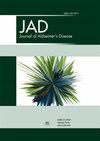走向以人为中心的痴呆风险研究成果回归:多元化、建设性的拓展。
IF 3.4
3区 医学
Q2 NEUROSCIENCES
引用次数: 0
摘要
Graham等人的文章提供了一个深思熟虑的解释,为什么向认知未受损的研究参与者披露可改变的痴呆风险因素可能在伦理上站得住。在这个伦理回应中,我们试图建设性地参与他们的论点,以人为本的方法肯定价值,同时也扩展了文化,社区和宗教背景如何进一步阐明返回个人研究成果的伦理。根据新出现的伦理问题和来自不同环境的例子,这一回应强调了污名化、宗教世界观、家庭护理传统和更广泛的社会经济因素如何影响痴呆症风险沟通的感知意义和影响。本文章由计算机程序翻译,如有差异,请以英文原文为准。
Toward a person-centered return of research results of dementia risk: A pluralistic, constructive expansion.
Graham et al.'s article offers a thoughtful account of why disclosing modifiable dementia risk factors to cognitively unimpaired research participants may be ethically defensible. In this Ethics Response, we seek to engage constructively with their arguments, affirming value in a person-centered approach, while also expanding on how cultural, communal, and religious contexts can further illuminate the ethics of returning individual research results. Drawing on emerging ethical issues and examples from diverse settings, this response highlights how stigmatization, religious worldviews, family care traditions, and broader socioeconomic factors may influence the perceived meaning and impact of dementia risk communication.
求助全文
通过发布文献求助,成功后即可免费获取论文全文。
去求助
来源期刊

Journal of Alzheimer's Disease
医学-神经科学
CiteScore
6.40
自引率
7.50%
发文量
1327
审稿时长
2 months
期刊介绍:
The Journal of Alzheimer''s Disease (JAD) is an international multidisciplinary journal to facilitate progress in understanding the etiology, pathogenesis, epidemiology, genetics, behavior, treatment and psychology of Alzheimer''s disease. The journal publishes research reports, reviews, short communications, hypotheses, ethics reviews, book reviews, and letters-to-the-editor. The journal is dedicated to providing an open forum for original research that will expedite our fundamental understanding of Alzheimer''s disease.
 求助内容:
求助内容: 应助结果提醒方式:
应助结果提醒方式:


